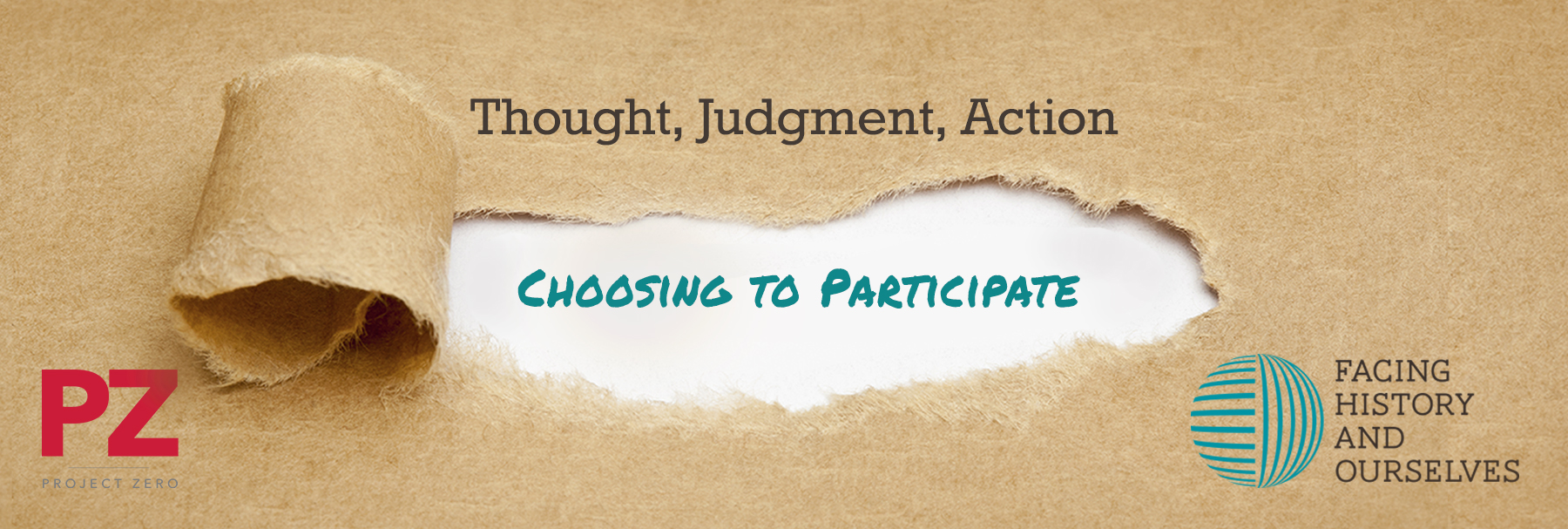The journey from empathy to action is a complicated one. It is one thing to care about something or someone, and quite another to find a way to stand up for the causes you believe in. And it's another thing still to stand up in a way that is both responsible and effective. How do we learn to participate?
In our increasingly complex and globalized world—one where fewer and fewer schools are taking the time to teach civics—what are the necessary dispositions we must cultivate to encourage young people to participate responsibly in contemporary society? Too often, adults encourage young people to take part in some sort of civic action without first helping them to develop civic, moral, and ethical reflection. So how can we as educators use ideas, methods, and tools from various disciplines to inform responsible participation?
On March 13, Facing History, with the cooperation of Project Zero at the Harvard Graduate School of Education, will hold our third annual Day of Learning. Called "Thought, Judgment, Action: Choosing to Participate," the day will bring together an interdisciplinary group of scholars to reflect on how we can help cultivate the tools young people need to responsibly participate in their communities today. You can tune in live and we will be hosting a Twitter chat throughout the day. Join us: #LearnFH2015.
MIT's Ethan Zuckerman will discuss ways in which contemporary activists use new media. NYU Philosopher and Chair of the Facing History Board of Scholar Dr. Kwame Anthony Appiah will discuss the various factors that bring about social change. Harvard Law School Dean Martha Minow will return to the essential question of why some people stand up in a crisis, while others do not. Rebecca Hamilton of Columbia Law School will reflect on her own journey from a young anti-genocide activist, to a lawyer at the International Criminal Court, to most recently a journalist covering the efforts to stop the atrocities in Darfur. Sandra Arnold of Fordham University will share her inspiration for and efforts to document the burial sites of enslaved African Americans, and the unexpected support she has received along the way. Doris Sommer, director of the Cultural Agents initiative at Harvard University, will bring stories of the surprising and powerful ways that interventions from artists have sparked social change.
Our hope is that the day will be intellectually rigorous and emotionally engaging, and that it will provoke ethical reflection and challenge us to imagine a world in which we do not only respond powerfully to hate and violence, but act in ways that will prevent it.
Find resources to start a conversation with young people about the importance of participation in our communities, nations, and world.
Join us March 13 to watch the livestream of our third annual Day of Learning tomorrow and on Twitter at #LearnFH2015.


